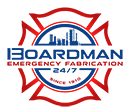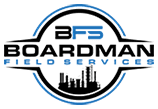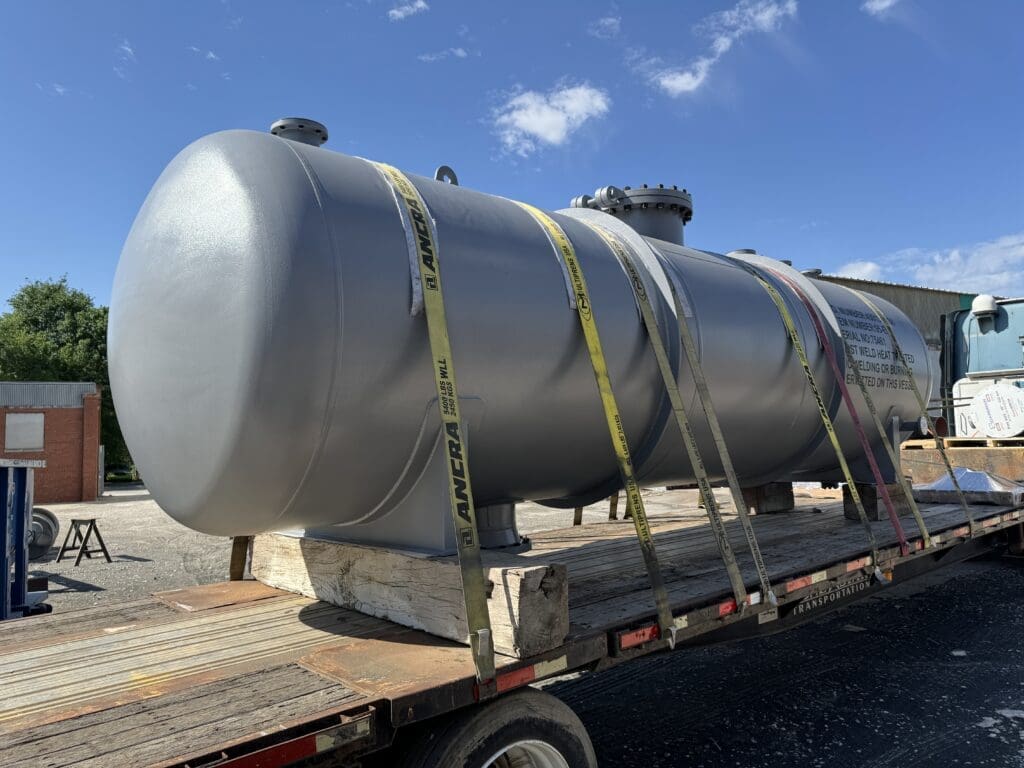In high-stakes industrial environments, a cracked weld, a ruptured vessel nozzle, or a damaged conveyor frame is never “just a repair.” It is lost throughput, missed contracts, and cascading safety and compliance risks. And the meter runs fast! Independent surveys peg unplanned downtime at around $125,000 per hour on average across industrial operations, but that number can be far higher in sectors like automotive and heavy processing. In some cases, the cost spikes into millions per hour.
So what’s the solution? Having a standing plan for emergency metal services is essential. These services are not optional extras, including emergency welding, repair, field fabrication, cutting, and code-compliant pressure work. It is necessary for risk control. Below, you’ll find the breakdown of the industries where 24/7 metal emergency services are mission-critical and what rapid response looks like when done right. If you are experiencing an emergency right now, please call us at (405) 821-8704 for our repair services.
Power Generation and Utilities
Electricity providers sell reliability. Forced outages threaten a plant’s capacity factor, and they propagate economic losses across every downstream customer. The U.S. Department of Energy and national labs precisely quantify power-interruption impacts. These numbers justify reliability investments, including lost output, spoilage, missed production windows, and public safety implications during outages. Emergency welding and code repairs on headers, ducts, stacks, boiler components, and balance-of-plant steel can shave hours or days off forced-outage durations.
What’s at stake? Every hour of outage can hit utilities and industrial customers with five- and six-figure losses—and that’s before reputational and regulatory ramifications.
Oil, Gas, and Petrochemical
Refineries and petrochemical complexes depend on weld integrity across pressure boundaries and structural steel around high-temperature, high-pressure units (CDUs, FCCUs, HCUs, cokers). A single unscheduled outage can shut down a central unit and cause ripple effects across the entire site. Real-world incidents, such as recent FCCU or CDU shutdowns reported by international refiners, underscore how quickly a malfunction can escalate into a full-plant problem.
What are the numbers? Analyses show oil and gas operators can lose millions per incident in unplanned shutdown costs, with offshore producers reporting an average of ~$38M annually from unplanned downtime. Emergency metal services like field weld repairs, nozzle replacements, exchanger shell work, coded pressure repairs, and rapid spool fabrication directly compress the outage timeline.
Mining and Aggregates
When a crusher frame cracks, a chute buckles, or a conveyor trestle fails, production doesn’t just slow. It stops. Case studies in crushing circuits put downtime in the tens of thousands of dollars per hour. Large, complex mines have reported single conveyor failures costing $6–$12 million, illustrating how a single structural issue can cascade into days of lost tonnage. Rapid on-site welding, structural steel replacement, and heavy-plate fabrication get belts running and mills turning again.
Food and Beverage Processing
Food processors operate on narrow production and sanitation windows. An unexpected break in a stainless platform, tank nozzle, or piping support can jeopardize an entire shift and product integrity. Industry reporting places typical food-plant downtime in the tens of thousands per hour. Some facilities cite about $30,000/hour in losses. Emergency stainless welding, sanitary TIG work, fast-tracked tank/nozzle repairs, and replacement skids help plants meet distribution slots and avoid quality risk.
Chemicals and Specialty Materials
In chemical processing, repairs are often code-governed, and materials are unforgiving (e.g., alloy steels, nickel alloys, clad vessels). A leak at a reactor manway or a cracked saddle on a pressure vessel is both a production and an EHS issue. Emergency metal services, including ASME Section VIII expertise, qualified weld procedures, and documentation, can determine whether a line restarts today or sits idle awaiting a certified shop. The best emergency partners immediately mobilize procedures, personnel, and material traceability to protect uptime and compliance.
Pulp and Paper and Heavy Manufacturing
Large dryers, digesters, stacks, kilns, and structural frames concentrate risk: when they go down, whole lines go dark. Cross-industry studies consistently show that heavy industry’s downtime exposure has surged in recent years. For example, the automotive sector now faces roughly $2.3 million per hour during severe events. When the stakes are like that, the difference between a shop that can mobilize a certified crew tonight and one that can’t is existential for the production schedule.
Water and Wastewater
Municipal and industrial water/wastewater systems rely on clarifiers, digesters, and structural steel that must remain operable. A cracked tank shell, corroded walkway, or failed support can imperil treatment capacity and regulatory compliance. Emergency metal work—field welding, plate replacement, ladder/platform repairs—keeps critical infrastructure online while permanent fixes are scheduled. (The broader economics of outage events in essential services mirror the utility sector’s justification for reliability investments.)
What Should Rapid Response Include?
When you have an emergency, you need to know your machinery is in good hands.
- Fast mobilization and triage. You want a partner to assess, quote, and mobilize a certified crew the same day, including night/weekend callouts. The first hour of response often determines whether you lose one shift or several. In many industries, an eight-hour outage approaches $1M in impact at typical rates.
- Code-compliant welding and documentation. For pressure boundary repairs, insist on ASME Section VIII expertise, qualified WPS/PQRs, and traceable materials, so you can restart without rework or regulatory surprises.
- Field fabrication plus shop capacity. The right team can cut, fit, and weld on site and also pull work into a large, fully equipped shop (roll, form, clad, machine) when that’s faster or safer.
- Multi-material proficiency. Carbon, stainless, duplex, and nickel alloys—as well as clad welding for corrosion-resistant overlays—cover the full spectrum of emergency scenarios.
- Safety and QA as accelerators, not obstacles. A mature QA program (NDE coordination, inspection plans, hold points) prevents rework and enables the fastest compliant restart.
Ready When Every Minute Matters
Downtime math is brutal. Surveys show the “typical” plant loses around $125,000 per hour, but industry-specific exposures can be much higher. Establishing an emergency-response relationship in advance, with site access cleared, safety orientations done, materials known, and WPSs approved, turns a cold call into a controlled event. That readiness is the difference between a half-shift hiccup and a multi-day crisis.
When a weld fails, a vessel needs code repair, or structural steel is compromised, you need action—not voicemail. Boardman offers 24/7 metal emergency services with fast-tracked emergency metal services in the shop or at your site: ASME Section VIII (Div. I & II) pressure-vessel expertise, field fabrication, specialty welding (including cladding), and a 140,000-ft² facility to accelerate critical repairs. If uptime is non-negotiable, set up your emergency plan today so response is immediate when it counts. Contact Boardman to get your rapid-response program in place now. If you are experiencing an emergency, please call us at (405) 821-8704.



